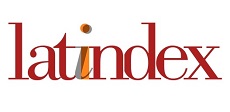Published
Ore-controlling structures and geostatistical determination of ore-shoots in shear zone hosted lode gold type deposits, El Bagre-Antioquia, Colombia
Controles estructurales de mena y determinaciones geoestadísticas de zonas de alta ley en depósitos vetiformes hospedados en zonas de cizalla, El Bagre-Antioquia, Colombia
DOI:
https://doi.org/10.15446/esrj.v26n1.92419Keywords:
El Bagre, Ore-Shoots, Geostatistics, Lode Gold Deposits (en)El Bagre, Altas Leyes, Geoestadística, Depósitos Vetiformes (es)
Downloads
Shear zone hosted lode gold type deposits at the El Bagre in the northeastern zone of Antioquia department of Colombia, are the only evidence of Permian gold mineralization to date in Colombia Andes. Orebodies at the El Bagre are structurally controlled and are considered as the product of ore-forming fluids derived from at least two episodes of fluid flow between the shear zones, thus different fluid flow could lead to orebodies and ore shoots plunge in different directions. The La Ye orebodies tend to strike to the NNW-NS and plunge to the SW, Mangos orebodies tend to strike (as a whole) to the NS-NNE and plunge to the NE and Cordero orebodies tend to strike (as a whole) to the NNW-NS and plunge to the NE. The ellipses determined by variogram modelling for these orebodies, reveal the anisotropy of gold mineralization and therefore the orientation of ore-shoots. The long axes of the anisotropy ellipses trend SSE. These high grades distributions are related to sinistral shearing and NNW-SSE faulting during D3 deformation event. This study exemplifies a simple and effective tool for exploration strategies regarding of orebodies, ore-shoots and ore-controlling structures relationships
Los depósitos vetiformes de oro hospedados en zonas de cizalla en El Bagre, al noreste del departamento de Antioquia, son la única evidencia de mineralización de oro Pérmica hasta la fecha en los Andes Colombianos. Los cuerpos minerales en El Bagre son controlados estructuralmente y son considerados como el producto de fluidos de mena derivados de al menos dos episodios de flujo al interior de las zonas de cizalla, por tanto, diferente flujo de fluidos podría llevar a que los cuerpos de mena y las zonas de alta ley tengan direcciones de buzamientos diferentes. Los cuerpos de mena de La Ye tienen un rumbo de NNW-NS y buzan el SW, en Mangos los cuerpos de tienen una dirección de rumbo NS-NNE y buzan hacia el NE y los cuerpos de mena en Cordero tienen un rumbo de NNW-NS y buzan hacia el NE. Las elipses determinadas por el modelamiento variográfico para estos cuerpos de mena, revela la anisotropía de la mineralización de oro y por tanto la orientación de las zonas de alta ley. Los ejes mayores de los elipsoides de anisotropía tienden hacia el SSE. Estas distribuciones de las altas leyes de oro son relacionadas a un cizallamiento sinestral y fallamiento NNW-SSE durante el evento de deformación D3. Este estudio ejemplifica una herramienta simple y efectiva para las estrategias de exploración referentes a las relaciones entre los cuerpos de mena, las altas leyes y las estructuras controladoras de mena.
References
Cediel, F. Shaw, R. P. & Cáceres, C. (2003). Tectonic assembly of the northern Andean block. American Association of Petroleum Geologists Memoir, 79, 815–848. DOI: https://doi.org/10.1306/M79877C37
Groves, D. I., Goldfarb, R. J, Grebe-Mariam, M., Hagemann, S. G. & Robert, F. (1998). Orogenic gold deposits: A proposed classification in the context of their crustal distribution and relationship to other gold deposit types. Ore Geology Reviews, 13, 7–27. https://doi.org/10.1016/S0169-1368(97)00012-7
Goldfarb, R. J. & Groves, D. I. (2015). Orogenic gold: Common or evolving fluid and metal sources. Lithos, 233, 2-26. https://doi.org/10.1016/j.lithos.2015.07.011
Goldfarb, R. J., Baker, T., Dubé, B., Groves D. I., Hart, C. J. R. & Gosselin, P. (2005). Distribution, character, and genesis of gold deposits in metamorphic terranes. Economic Geology, 100th Anniversary Volume, 407-450. https://doi.org/10.5382/AV100.14.
Gómez-Tapias, J., Montes-Ramirez, N. E., Nivia-Guevara, A., & Diederix, H. (2015). Mapa Geológico de Colombia, escala 1:1.000.000. Servicio Geológico Colombiano.
Groves, D. I, Goldfarb, R. J., Robert, F., & Hart, J. R. (2003). Gold Deposits in Metamorphic Belt: Overviews of Current Understanding, Outstanding Problems, Future Research and Exploration Significance. Economic Geology, 98, 1-29. https://doi.org/10.2113/gsecongeo.98.1.1
Groves, D. I. & Santosh, M. (2016). The giant Jiaodong gold province: The key to a unified model for orogenic gold deposits? Geoscience Frontiers, 7, 409-417. https://doi.org/10.1016/j.gsf.2015.08.002
Horner, J. (2018). Second opinion on exploration activities, El Bagre mining district, dept. of Antioquia, Colombia. Internal Report prepared to Mineros S. A. 27p.
Hulin, C. (1929). Structural control of ore deposition. Economic Geology, 24, 15-49. https://doi.org/10.2113/gsecongeo.24.1.15
Leal-Mejia, H. (2011). Phanerozoic Gold Metallogeny in the Colombian Andes: A Tectono-Magmatic Approach. Ph.D. Thesis, University of Barcelona, Barcelona, Spain.
Londoño, C., Montoya, J. C., Ordoñez, O., & Restrepo, J. J. (2009). Características de las mineralizaciones vetiformes en el Distrito Minero Bagre-Nechi, Antioquia. Boletín de Ciencias de la Tierra, 26, 29-38.
Matheron, G. (1963). Principles of geostatistics. Economic Geology, 58, 1246–1266. https://doi.org/10.2113/gsecongeo.58.8.1246
Miller, J. M. & Wilson, C. J. L. (2004). Structural analysis of faults related to a heterogeneous stress history: Reconstruction of a dismembered gold deposit, Stawell, western Lachlan Fold Belt, Australia. Journal of Structural Geology, 26,1231–1256. https://doi.org/10.1016/j.jsg.2003.11.004
Monteiro, R. N. (1996). Gold Mineralization at Ouro Fino Mine, Brazil: Structure and Alteration. Ph.D. Thesis, University of Western Ontario, London, ON, Canada.
Monteiro, R. N., Fyfe, W. S. & Chemale, F. (2004). The impact of the linkage between grade distribution and petrofabric on the understanding of structurally controlled mineral deposits: Ouro Fino gold mine, Brazil. Journal of Structural Geology, 26, 1195–1214. https://doi.org/10.1016/j.jsg.2003.11.023
Moreno–Sánchez, M., Gómez–Cruz, A. & Buitrago–Hincapié, J. (2020). Paleozoic of Colombian Andes: New paleontological data and regional stratigraphic review. In: Gómez, J. & Mateus–Zabala, D. (editors). The Geology of Colombia, Volume 1 Proterozoic – Paleozo¬ic. Servicio Geológico Colombiano, Publicaciones Geológicas Especiales 35, 37 p. Bogotá. https://doi.org/10.32685/pub.esp.35.2019.09
Moritz, R. (2000). What have we learned about orogenic lode gold deposits over the past 20 years? Scientific Communication. Section des Sciences de la Terre. University of Geneva, Switzerland. 1-7.
Naranjo Sierra, E., & Alvaran Echeverri, M. (2020). Fluid inclusion study of shear zone hosted lode gold type deposits: El Bagre mining district, Antioquia-Colombia. Earth Sciences Research Journal, 24(3), 245-257. https://doi.org/10.15446/esrj.v24n3.80653
Naranjo-Sierra, E. & Alvarán-Echeverri, M. (2018). Características geológicas, isotópicas y estructurales del depósito vetiforme Los Mangos, Antioquia-Colombia. Boletín de Geología, 40, 93-108. https://doi.org/10.18273/revbol.v40n1-2018006
Naranjo-Sierra, E. (2019). Estudio Metalogenético de los depósitos vetiformes La Ye, Los Mangos y el prospecto Cordero-Balvina en la zona norte del Distrito Minero El Bagre, Antioquia-Colombia. MSc. Thesis, University of Caldas, Manizales, Colombia.
Naranjo-Sierra, E., Alvaran-Echeverri, M. & Zapata-Cardona, E. (2016). Análisis metalogenético preliminar del depósito vetiforme en mina La Ye, Antioquia-Colombia: características geológicas, isotópicas y estructurales. Revista Mexicana de Ciencias Geológicas, 33, 316-328.
Restrepo, J. J. & Toussaint, J. F. (1988). Terranes and continental accretion in the Colombian Andes. Episodes, 11(3), 18919. https://doi.org/10.32685/pub.esp.35.2019.03
Restrepo, J. J. & Toussaint, J. F. (2020). Tectonostratigraphic terranes in Colombia: An up¬date. First part: Continental terranes. In: Gómez, J. & Mateus–Zabala, D. (Eds.). The Geology of Colombia, Volume 1 Proterozoic – Paleozoic. Servicio Geológico Colombiano, Publicaciones Geológicas Especiales 35, 27 p. Bogotá.
Shaw, R. P. (2000). Gold mineralization in the Northern Andes – magmatic setting vs. metallogeny [technical summary]: International Mining Congress XI, Bogotá, Colombia.
Sibson, R. (2004). Controls on maximum fluid overpressure defining conditions for mesozonal mineralization. Journal of Structural Geology, 26, 1127-1136. https://doi.org/10.1016/j.jsg.2003.11.003
Sillitoe, R. H. (2008). Major gold deposits and belts of the North and South American Cordillera–Distribution, tectonomagmatic settings and metallogenic considerations. Economic Geology, 103, 663-687. https://doi.org/10.2113/gsecongeo.103.4.663
Starling, A. (2015). Structural review of La Ye and Icacales-Los Mangos mines. Internal Field Report prepared to Mineros S.A and Operadora Minera S.A.S. 26p.
Wang, S. R., Yang, L. Q., Wang, J. G., Wang, E. J., & Xu, Y. L. (2019). Geostatistical Determination of Ore Shoot Plunge and Structural Control of the Sizhuang World-Class Epizonal Orogenic Gold Deposit, Jiandong Peninsula, China. Minerals, 9, 1-15. https://doi.org/10.3390/min9040214
Whitney, D. L & Evans, B. W. (2010). Abbreviations for names of rock-forming minerals. American Mineralogist, 95, 185–187. https://doi.org/10.2138/am.2010.3371
How to Cite
APA
ACM
ACS
ABNT
Chicago
Harvard
IEEE
MLA
Turabian
Vancouver
Download Citation
CrossRef Cited-by
1. Kouankap Nono Gus Djibril, Mohamed Moustapha Ndam Njikam, Alessandra Ribodetti, Njikeu Olivier, Ntoogue Paul, Robillard Claude. (2025). Integrating field data, petrography, and induced polarization geophysical survey for 3D modeling and delineation of gold mineralization targets in Bissiang area, Nyong group, Cameroon. Results in Earth Sciences, 3, p.100139. https://doi.org/10.1016/j.rines.2025.100139.
Dimensions
PlumX
Article abstract page views
Downloads
License

This work is licensed under a Creative Commons Attribution 4.0 International License.
Earth Sciences Research Journal holds a Creative Commons Attribution license.
You are free to:
Share — copy and redistribute the material in any medium or format
Adapt — remix, transform, and build upon the material for any purpose, even commercially.
The licensor cannot revoke these freedoms as long as you follow the license terms.
The Earth Sciences Research Journal is the copyright holder for these license attributes.























